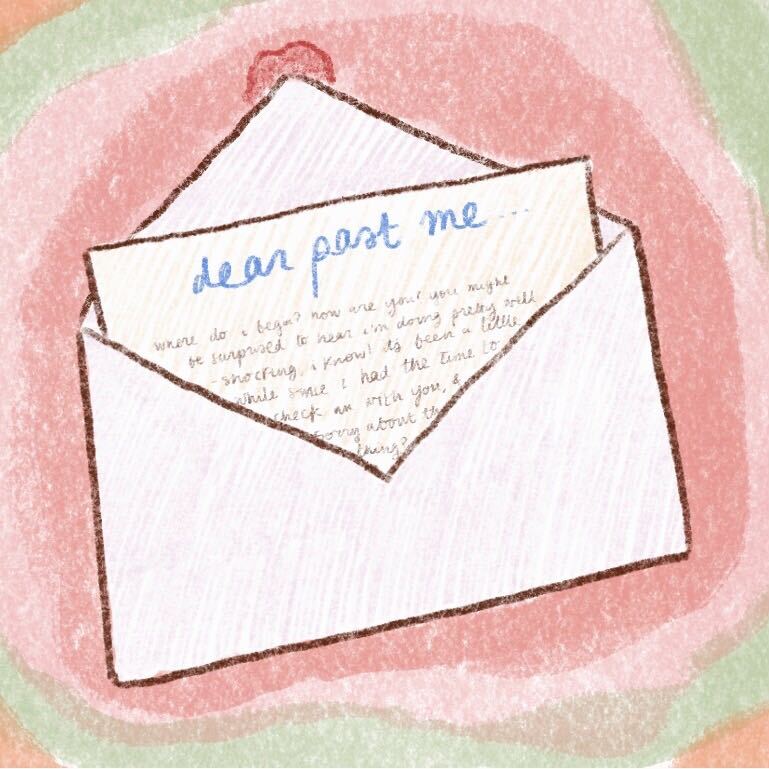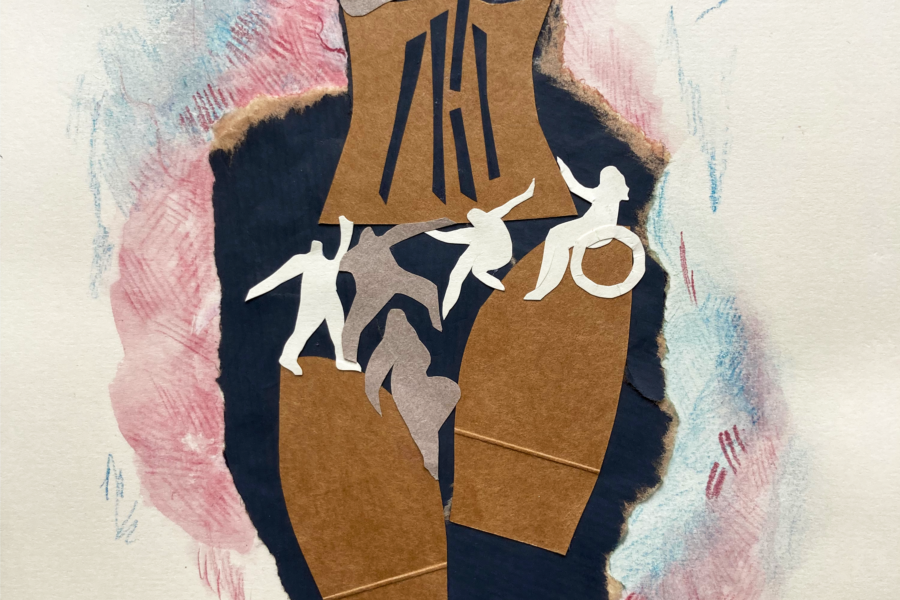What would you tell your younger self about sex if you could? A member of our community opens up about their experience with vaginismus, a pelvic floor condition which makes penetrative sex difficult or impossible. Read more to find out about their experience.

Dear past me, sex shouldn’t hurt.
Dear past me, sex shouldn’t hurt.
And I wish someone had told me that. I wish that there was more information available to my sixteen year old self than the terrifying rabbit hole of Web-MD. Cosmopolitan had assured me that sex might hurt to begin with – it often does for people with vaginas – but that it would get easier.
Armed with the information that pain was par for the course, I didn’t realise there was anything wrong with the way I was experiencing sex. My peers in high school weren’t having it, or weren’t discussing it, and so it wasn’t until I reached university that I realised something was different for me. My friends with vaginas and I would talk about our experiences over bottles of wine and as my head got hazier, my situation became clearer:
“You mean it doesn’t hurt you? Not even at the beginning? Not like a stinging pain? Or bleeding?”
My friends would shake their heads, bewildered. I think this was the point where I first heard the word vaginismus, which is a condition where the vagina tightens up when something is inserted into it. Because I was still able to have penetrative sex at that point – albeit with discomfort – the word didn’t flash like a lightbulb above my head or resonate particularly deeply with me.
However, as the months went on and I continued to have relations that I wanted but that my body was not ready for, I found I couldn’t have penetrative sex at all. Sexual dysfunction is as much a mental affliction as a physical one. Sex was sore – but so was the crushing feeling that somehow I had failed at being the sex-positive woman that I wanted to be.
Faced with the fact that this was not a typical experience, at last I went to the GP. My doctor was a very kind woman who explained to me that I probably did have vaginismus, and that she would refer me to a sexual health clinic. Cue: a global pandemic, and several months later, I arrived at Chalmers sexual health clinic to pick up my vaginal trainers. I remember I picked them up on the way to meet a friend, and we laughed, unwrapping them from their packaging like they were something naughty. For the rest of the article, I’ll be referring to vaginal trainers as dilators, which I’m aware is wrong, but this is what I’ve always called them.
Dilators, for me, were an important part of treating vaginismus. They are designed to stretch the pelvic floor muscles and allowed me to practise being relaxed. For the first time in my life, I was meditating on a regular basis. The dilators came in various sizes. For the first several months of using them, I was so happy that I could insert the smallest one. Healing is not, and never was linear. Sometimes, I push myself too far, cause some pain, give myself a fright, and have to start back at square one. Teaching myself to be calm and forgiving has helped me to go at my own pace. Appreciating the small wins is important; I remember being ecstatic at being able to wear a tampon for the first time in years.
Dear past me, I’m so proud of you.
Vaginismus made dating feel complicated, even though it wasn’t. Intimacy felt all the more intimate because it came with the need to explain a condition not many people had even heard of. It took me a long time to be comfortable sharing this very private part of my life, but I found the courage, and people were kind. I used to joke with prospective partners that although it sounded scary, they definitely couldn’t catch it from me.
Dear past me, sex is not just penetration. There are lots of ways to be intimate with people.
So, dear past me and anyone else in the same position, sex should be, and sex can be, comfortable. Penetration is not the be-all, end-all, and it might not be impossible either. Vaginismus is not a bad word. People will be kind when you explain it to them, and if they’re not, they’re not worth having sex with anyway.
Thank you to the doctors, the dilators and the dear, dear friends who talked about sex with me, without whom I might not have realised what was going on with my body.
Resources
If you or someone you know is looking for resources or literature on vaginismus, I have included some links below.
NHS information on how to recognise and treat vaginismus: https://www.nhs.uk/conditions/vaginismus/
Instagram support page: https://www.instagram.com/thevagnetwork/?hl=en
‘Pretending’ by Holly Bourne features a main character who has a very functional dating life and vaginismus, which that really helped to normalise the condition for me. (CW for the book: sexual assault/ abuse within a relationship): https://www.waterstones.com/book/pretending/holly-bourne/9781473668171
Guided meditation for pelvic floor relaxation: https://www.youtube.com/watch?v=4syPT8gMDDA&list=PL-67mn5S6DOI9YBEACfdk04V6LZpB2XfR&index=1&t=323s
Published anonymously by a member of the Clitbait community. If you would like to write about what you’d tell your past self about sex, please email our sex and relationships editor, meli.clitbait@gmail.com.
Graphic by Lucia Villegas @sweetsunbeams on instagram.






Leave a Comment